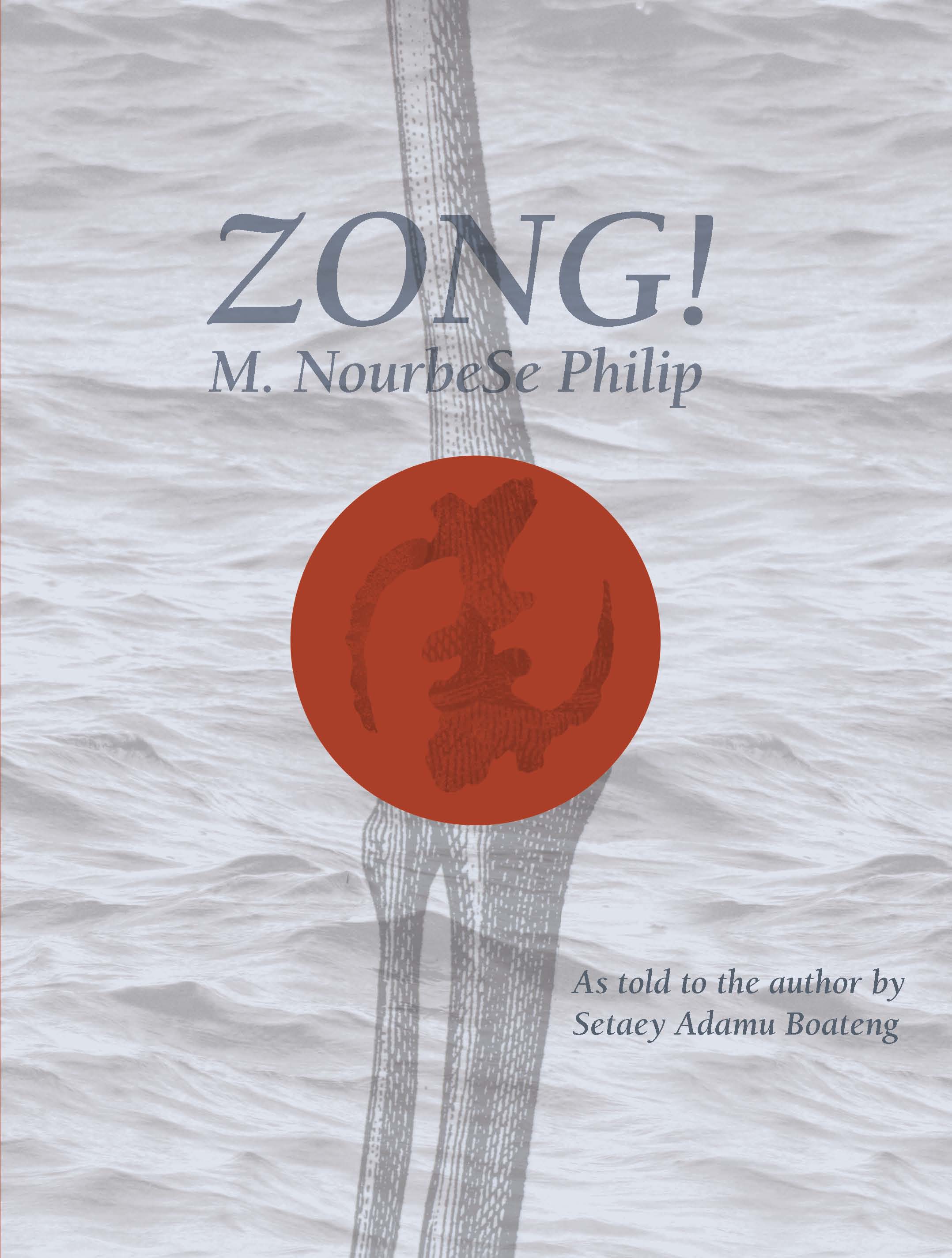M. NourbeSe Philip: Zong! (2008)
Filed under fiction | Tags: · archive, law, memory, poetry, slavery

“A haunting lifeline between archive and memory, law and poetry
In November, 1781, the captain of the slave ship Zong ordered that some 150 Africans be murdered by drowning so that the ship’s owners could collect insurance monies. Relying entirely on the words of the legal decision Gregson v. Gilbert—the only extant public document related to the massacre of these African slaves—Zong! tells the story that cannot be told yet must be told. Equal parts song, moan, shout, oath, ululation, curse, and chant, Zong! excavates the legal text. Memory, history, and law collide and metamorphose into the poetics of the fragment. Through the innovative use of fugal and counterpointed repetition, Zong! becomes an anti-narrative lament that stretches the boundaries of the poetic form, haunting the spaces of forgetting and mourning the forgotten.”
Publisher Wesleyan University Press, Middletown, CT, and Mercury Press, Toronto, 2008
Wesleyan Poetry series
ISBN 9780819568762, 0819568767
xii+211 pages
Reviews: Tyrone Williams (African Am Rev, 2009), Helen Klonaris (sx salon, 2011).
Commentary: Fred Wah (Jacket2, 2013), Janet Neigh, Phanuel Antwi and Veronica Austen, M. NourbeSe Philip, Evie Shockley, Mecca Jamilah Sullivan (Jacket2, 2013), Jenny Sharpe (Interventions, 2014).
Interview: Paul Watkins (Toronto Rev Books, 2014).
Companion website
Author
Publisher
WorldCat
PDF
Philip reading from Zong! (audio, 2007-2016)
Hillel Schwartz: The Culture of the Copy: Striking Likenesses, Unreasonable Facsimiles, 2nd ed. (1996/2013)
Filed under book | Tags: · animal, appropriation, art, children, computing, copy, death, fashion, film, gender, genetics, history, imitation, japan, language, machine, memory, music, photography, piracy, property, reenactment, reproduction, sculpture, simulation, slavery, statistics, surgery, technology, theatre, time, war

The Culture of the Copy is an unprecedented attempt to make sense of the Western fascination with replicas, duplicates, and twins. In a work that is breathtaking in its synthetic and critical achievements, Hillel Schwartz charts the repercussions of our entanglement with copies of all kinds, whose presence alternately sustains and overwhelms us. Through intriguing, and at times humorous, historical analysis and case studies in contemporary culture, Schwartz investigates a stunning array of simulacra—counterfeits, decoys, mannequins, and portraits; ditto marks, genetic cloning, war games, and camouflage; instant replays, digital imaging, parrots, and photocopies; wax museums, apes, and art forgeries, not to mention the very notion of the Real McCoy. Working through a range of theories on biological, mechanical, and electronic reproduction, Schwartz questions the modern esteem for authenticity and uniqueness. The Culture of the Copy shows how the ethical dilemmas central to so many fields of endeavor have become inseparable from our pursuit of copies—of the natural world, of our own creations, indeed of our very selves.
This updated edition takes notice of recent shifts in thought with regard to such issues as biological cloning, conjoined twins, copyright, digital reproduction, and multiple personality disorder. At once abbreviated and refined, it will be of interest to anyone concerned with proglems of authenticity, identity, and originality.
First published in 1996
Publisher Zone Books, New York, 2013
ISBN 1935408453, 9781935408451
480 pages
Review (Terence Hawkes, London Review of Books, 1997)
Review (Francis Kane, The New York Times, 1997)
Review (Todd Gitlin, Los Angeles Times, 1997)
Download (removed on 2014-3-20 upon request of the publisher)
Comment (1)Susan Buck-Morss: Hegel, Haiti, and Universal History (2000–) [EN, ES, TR]
Filed under book | Tags: · freemasonry, history, philosophy, slavery

“In this path-breaking work, Susan Buck-Morss draws new connections between history, inequality, social conflict, and human emancipation. Hegel, Haiti, and Universal History offers a fundamental reinterpretation of Hegel’s master-slave dialectic and points to a way forward to free critical theoretical practice from the prison-house of its own debates. Historicizing the thought of Georg Wilhelm Friedrich Hegel and the actions taken in the Haitian Revolution, Buck-Morss examines the startling connections between the two and challenges us to widen the boundaries of our historical imagination. She finds that it is in the discontinuities of historical flow, the edges of human experience, and the unexpected linkages between cultures that the possibility to transcend limits is discovered. It is these flashes of clarity that open the potential for understanding in spite of cultural differences. What Buck-Morss proposes amounts to a ‘new humanism’, one that goes beyond the usual ideological implications of such a phrase to embrace a radical neutrality that insists on the permeability of the space between opposing sides and as it reaches for a common humanity.”
English edition
Publisher University of Pittsburgh Press, 2009
ISBN 0822973340, 9780822973348
164 pages
Hegel and Haiti (English, paper, Critical Inquiry, 2000, updated on 2019-12-3)
Hegel y Haití: La dialéctica amo-esclavo, una interpretación revolucionaria (Spanish, trans. Fermín Rodríguez, 2005)
Hegel, Haiti, and Universal History (English, 2009, updated on 2019-12-3)
Hegel, Haiti ve Evrensel Tarih (Turkish, trans. Erkal Ünal, 2012, added on 2020-1-15)
Hegel, Haití y la historia universal (Spanish, trans. Juan Manuel Espinosa, 2013, added on 2020-1-15)

